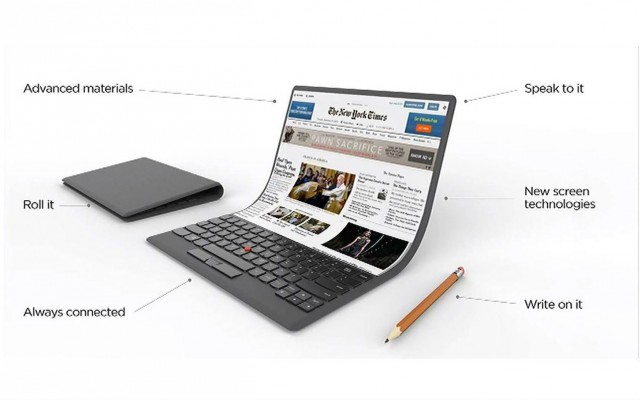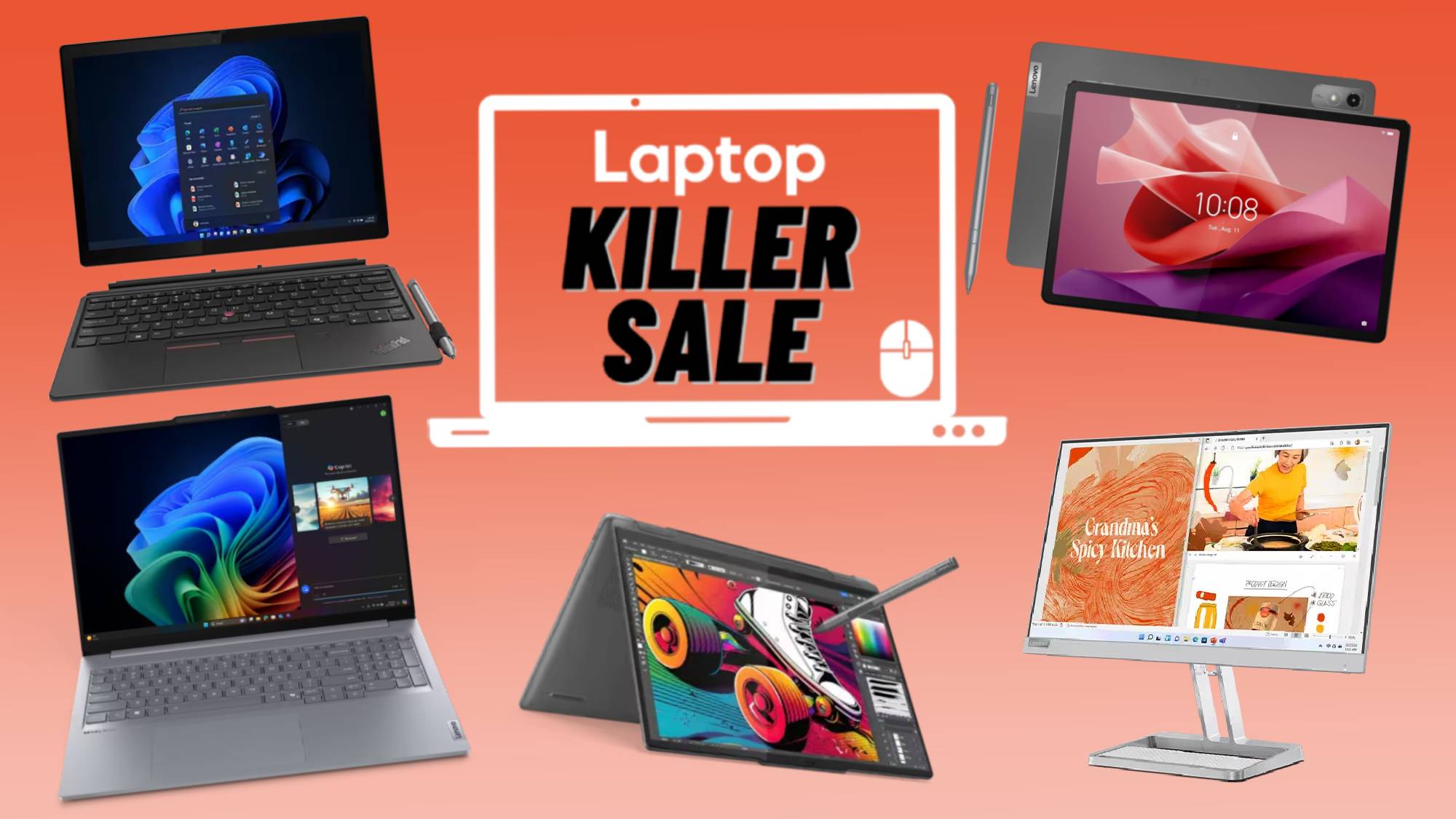Intel Says Foldable Laptops Are 2 Years Away
There's a ton of hype surrounding foldable smartphones, especially with the (hopefully) upcoming release of the Samsung Galaxy Fold. But what about laptops with flexible displays? I'm afraid we have some bad news: folding laptops are at least two years away, according to a report by Nikkei Asian Review citing an executive at Intel.

Credit: Lenovo/YouTube
Anyone eagerly awaiting a laptop with a flexible screen will have to wait until 2021 at the earliest, but there is a silver lining. According to the report, Intel sees potential in the format and is currently researching use cases for foldable laptops.
MORE: Samsung's Foldable Screen Laptop Will Reinvent the PC
"It's early pathfinding now, and we are trying to understand the capability and the limitation of the [foldable] technology," Joshua Newman, Intel's general manager of mobile innovation and vice president of the company's Client Computing Group, told Nikkei Asian Review.
The chipmaker has gone beyond the planning stages and is reportedly in talks with several flexible display manufacturers, including LG, Samsung and Sharp.
As Samsung proved with the botched release of the Galaxy Fold, flexible devices face some difficult technical hurdles. But even when those are ironed out, laptop makers will need to ensure that apps and programs scale properly when a laptop is placed in different orientations. Microsoft is reportedly adopting Windows 10 for foldable devices, although the software giant hasn't made any official announcements just yet.
Stay in the know with Laptop Mag
Get our in-depth reviews, helpful tips, great deals, and the biggest news stories delivered to your inbox.
All signs point to foldable laptops being the next big thing in computing. We'll just have to wait a few more years to find out.
Phillip Tracy is the assistant managing editor at Laptop Mag where he reviews laptops, phones and other gadgets while covering the latest industry news. After graduating with a journalism degree from the University of Texas at Austin, Phillip became a tech reporter at the Daily Dot. There, he wrote reviews for a range of gadgets and covered everything from social media trends to cybersecurity. Prior to that, he wrote for RCR Wireless News covering 5G and IoT. When he's not tinkering with devices, you can find Phillip playing video games, reading, traveling or watching soccer.

